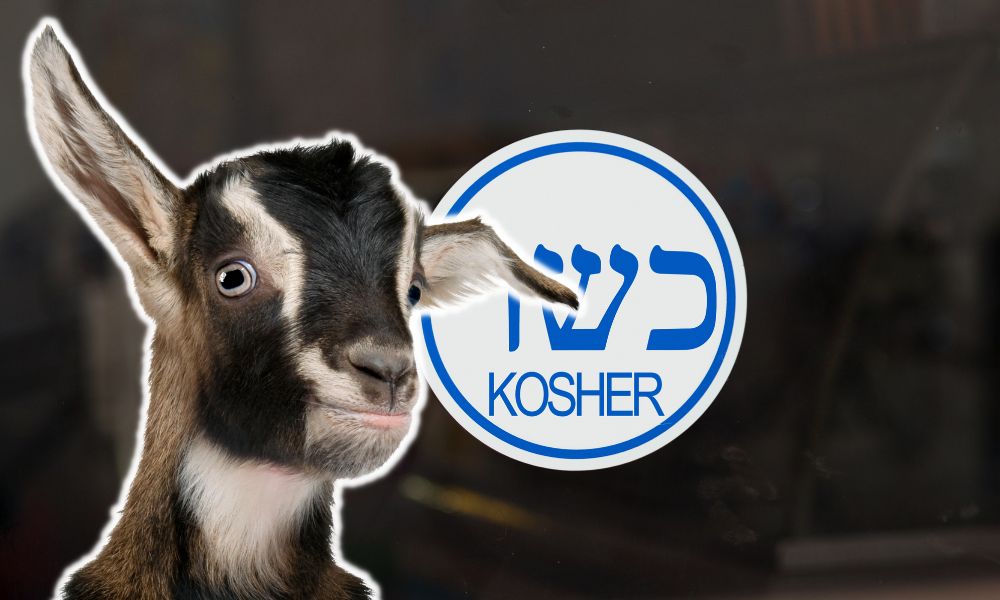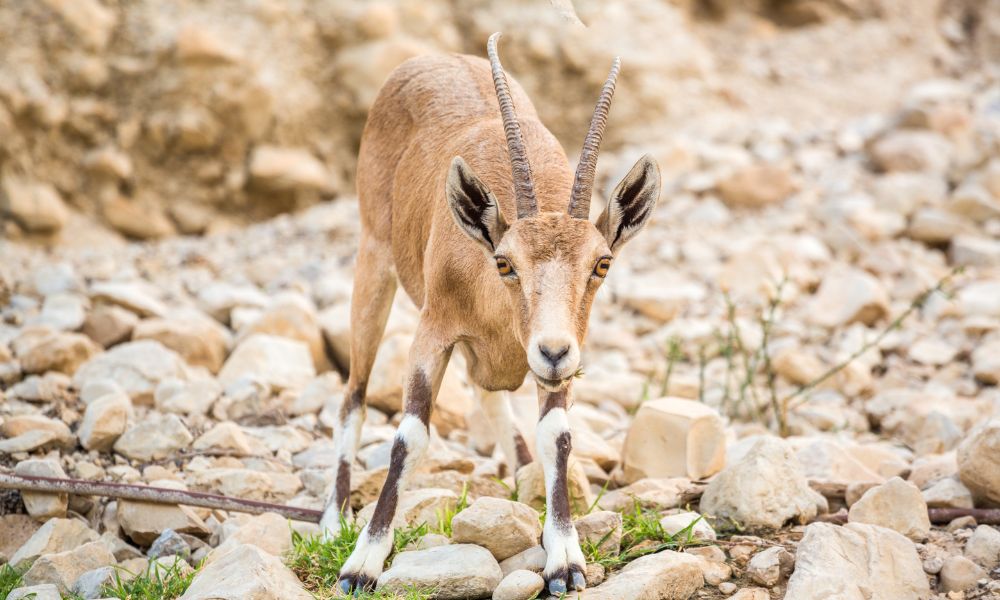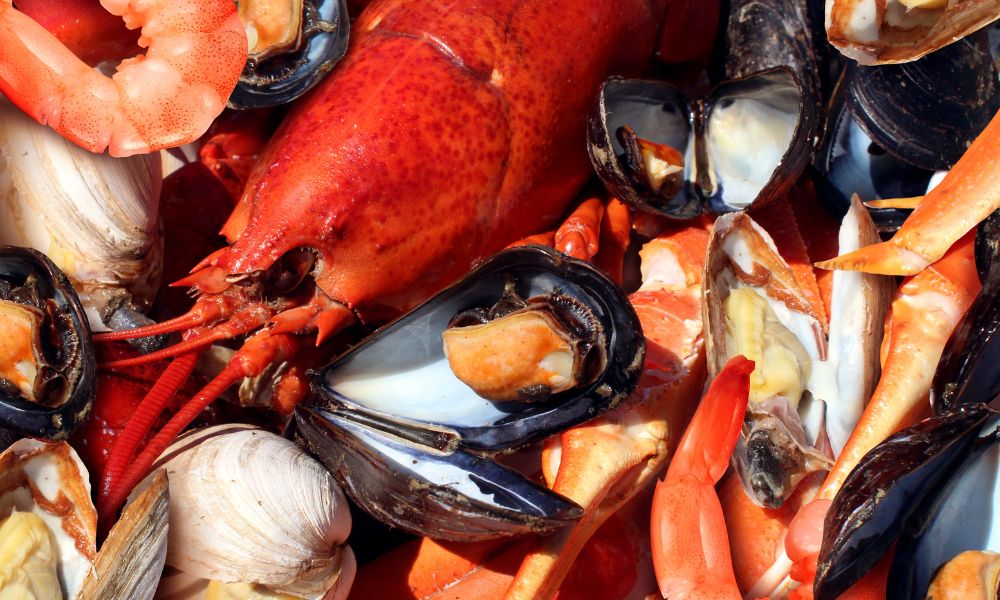The rules about which animals are kosher in Judaic tradition are quite particular and specific.
Scripture set into place laws and taboos about some animals long, long ago and those traditions have endured ever since.
Whether or not an animal is kosher refers to whether or not it is acceptable for practicing Jewish people to eat it, and since goats and goat meat have been a staple of human diets for even longer than the kosher tradition has existed, you might be wondering where they fit into the rules.
Kosher animals, then, are almost exclusively ruminants, of which goats are an important member.
Animals like deer, gazelle, roebuck, ibex, antelope and mountain sheep are all ruminants and are all kosher, because ruminants usually have cloven hooves and they usually have to chew their food several times.
Other kosher laws apply to things like birds.
Most common types of domestic fowl are kosher, but more wild birds are not.
But, before we say any more, let’s take a quick look at what kosher actually is.

What is kosher?
Kosher usually only applies to food; this is where you will hear it most commonly mentioned.
For something to be kosher, it essentially just means it satisfies the requirements of Jewish law.
For goats, this means that because goats have cloven hooves and chew up their cuds, they are kosher animals and it is permissible to eat their meat.
Kosher also refers to how the animal is slaughtered.
Trained, kosher butchers will know all of the proper procedures and rules, but essentially the Kosher slaughter (or Shechitah) is about observing the utmost respect for the animal.
Traditions such as these are extremely common among world religions, and Judaism is no exception.
Goats are and have been a staple livestock of the Middle East for perhaps tens of thousands of years, so it’s easy to understand why an emerging religious tradition would want to encourage their consumption.
What animals are kosher?
Goats are part of the central group of animals described as Kosher by the Bible.
Ruminants, as I said, with cloven hooves that chew their cud, are all kosher.
Given the region in which Judaism emerged, you can see why certain animals made the cut.
Goats, deer, ibex, mountain sheep, even antelope and gazelle are all native to the Middle East, where the Jewish people were first recorded.

It helps to understand part of the reason certain animals were considered kosher at the time.
Animals like these were numerous, relatively easy to hunt, and completely safe to eat.
Kosher law was in part about restricting the consumption of animals which were considered dangerous.
What animals are not kosher?
Equally, looking at the animals that are not kosher illuminates part of the reasons for these rules.
Pigs are the most commonly known non-kosher animal.
They are not ruminants, though they do have cloven hooves.
However, the word kosher actually can be translated to ‘clean’ or ‘pure’, so essentially the fact that pigs were not kosher was a prohibition against eating animals that were thought to be dirty or unclean.
Other animals that are not kosher include shellfish, again very commonly known from the rules stated in the Bible.
Reptiles are also not kosher, and neither are camels, eagles and many types of fish.

Kosher, in the simplest sense, tries to classify animals which are safe and not safe to eat, although we obviously know much more now than we did then.
Now it is as much a religious tradition as serving any worldly purpose.
Related – Are Goat Testicles Halal?
Are goats halal?

In the Muslim world, the tradition of halal also dictates the proper method for slaughtering an animal and mentions which animals should and should not be eaten.
The difference here is that you can’t really refer to a live animal as ‘halal’, since halal only describes the meat and how it is killed.
Certain animals are forbidden to be eaten by Islamic tradition, such as pigs.
Pigs are known as haram, which essentially just means they are forbidden by Islamic law.
Goats are certainly permissible to eat in Islamic tradition, as they are in all Abrahamic religions.
Provided the animal is killed in the right way and with the correct reverence, the meat is halal and permissible to eat.
There are many shared customs in the traditions of halal and kosher meat and slaughter, which makes sense given that they both emerged in a similar part of the world under similar conditions.
Again, I think it’s interesting to consider why these rules were put in place, to begin with, and the encouraging of people to eat goat seems to be a ringing endorsement of the dietary benefits goats have had on us over the millennia.
So, yes, goats are definitely kosher and indeed are one of the relatively few animals that are.
Kosher law essentially makes the rules very easy to understand by clearly and narrowly defining what fits into kosher law, and excluding everything else.
Rather than having the law tailor specific rules to each animal you might find, you can simply look for the key features of a kosher animal and if it lacks them, you can safely assume the animal is not kosher.
